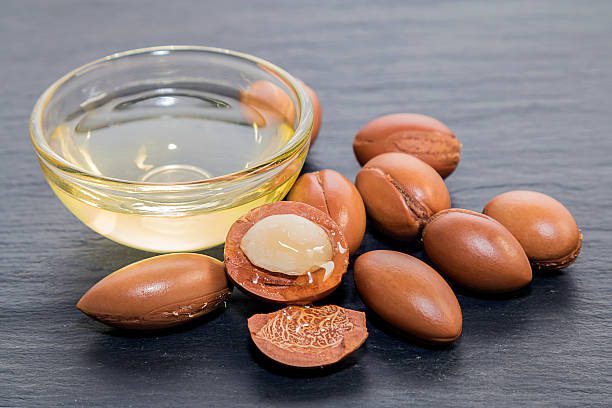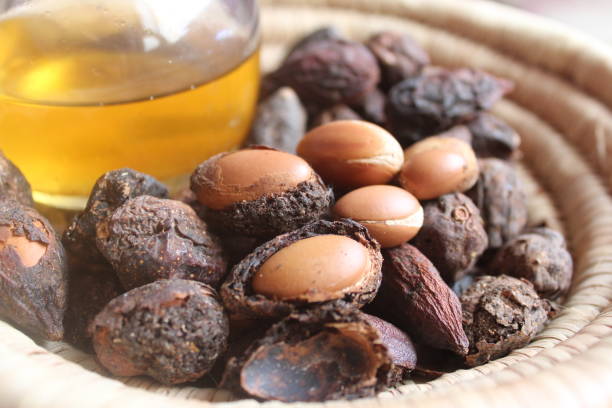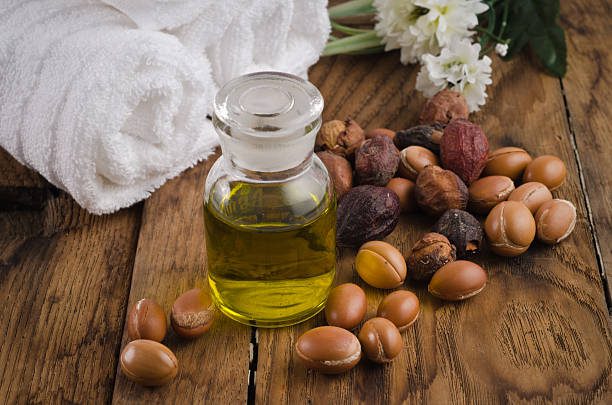What is argan oil
Have you ever considered what it means, what is argan oil, and why it has arose as the latest trend in the beauty sector? This liquid gold that is being defined as ‘Liquid Gold’ has been creating ripples in the health care manufacturing, especially in skin and hair care as well as in the culinary business. But what is argan oil, and why is this creation so special? Here we cover all you need about argan oil, starting from its history to its uses and all the benefits that are related with the use of the oil.

The Origins of Argan Oil: Morocco’s Gift to the World
The Production Process: From Nut to Oil
How is argan oil made?
- Harvesting: The fruit of the tree is gathered, usually by women in the natives’ formation cooperatives.
- Drying: The fruit is dried indiscriminately in the open air without having first undergone some form of sterilization.
- Extraction: Often the flesh of the fruit is dried and separated from the nut.
- Cracking: The eye of the nut is opened by using a hard hammer in order to get the kernels.
- Grinding: The kernels are then ground and pushed down to extract the desired oil out of them.
- Filtering: Subsequently, the oil is filtered so that only the finest grade is produced.
Such extensive procedure helps in making the oil scarce and expensive, hence why we find mostly pure argan oil costly.
The Composition of Argan Oil: Nature’s Complex Formula
What is argan oil made of?
When we say “what is argan oil?” we want to know more about what this what is argan oil is made up of. Argan oil is a complex blend of beneficial compounds.
- Fatty Acids: A rich source of fat, including the oleic and linoleic acids.
- Vitamin E: A powerful antioxidant
- Phenols: Caffeic acid, a phenolic compound, and oleuropein, a secooid, have been found to be present in olive.
- Sterols: For example, schottenol and spinasterol
- Squalene: A natural moisturizer
It is due to this major and rare combination that argan oil is endowed with such properties and uses.
Argan Oil in Skincare: A Natural Beauty Elixir
What is argan oil’s role in skincare?
Of course, the question “what is argan oil?” emerges in the focus of attention in conversations about the care of the facial skin, and for a good reason. This versatile oil offers numerous benefits for the skin:
- Moisturizing: The quantity of fatty acids it contains makes it effective in moisturizing and smoothening the skin.
- Anti-aging: The natural compounds of argan oil fight free radicals, possibly helping to minimize the creation of fine lines and wrinkles.
- Acne-fighting: That is, depending on their composition, they may be successfully used for the purpose of regulation of sebum production while having an anti-inflammatory action, in spite of containing oil.
- Skin repair: Hyaluronic acid may help in the recovery and skin firming process.
Argan Oil for Hair: Nourishment from Root to Tip
What is argan oil’s impact on hair health?
- Moisturizing: It assists in moisturizing ‘’dull’’, or ‘’wirey’’ hair.
- Frizz control: The oil serves to help reduce instances of falling and flying hair and enhance shine at the same time.
- Scalp health: It may possess the ability of reducing inflammation, hence helping to ease conditions affecting the scalp.
- Heat protection: While some apply it as a natural heat protectant before blow-drying, curling, straightening, or any other heat-welding process.
Whether in leave-in treatments or in hair masks, argan oil has now become a commonplace ingredient in many hair care products.
Culinary Uses of Argan Oil: A Gourmet Ingredient
What is argan oil’s place in the kitchen?
What is Argan oil most commonly used for depends on one’s perspective; the one and only nut crop whence cosmetic industries source oils and creams from for cosmetics, a popular cooking oil in Morocco. Food-grade argan oil is produced from lightly toasted kernels and therefore has a walnut-like taste. It’s used in:
- Dressings: To add flavor to salads
- Dips: As a component incorporated into Moroccan traditional amlou
- Finishing oil: Used as a condiment poured over food to spike it up a notch.
- Bread accompaniment: As a dipping oil
It’s also well suited for some types of cooking since it possesses a high smoke point.
The Sustainability Factor: More Than Just an Oil
What is argan oil’s environmental impact?
Employ and women’s empowerment are created by the industry, which is mostly owned by the women’s cooperatives. When purchasing argan oil for your skin or hair, opt for the organic virgin product, which will be of extra benefit to the impoverished Berber women and help to assist in the conservation of the few disappearing forests in Morocco.
Choosing and using argan oil
What is argan oil quality?
- Not each one of the argan oils is the same as the other one. When selecting argan oil, consider:
- Purity: Buy 100% natural argan oil that is free from any other ingredient.
- Packaging: The nondescript black glass bottles keep light from getting to the oil and starting a degradation process.
- Certification: Organic and fair-trade certifications—check them.
- Intended use: beauty applications, so the cosmetic grade, and for ingestion, the culinary grade.

Conclusion:
In answering the question “What is argan oil?” Here we have a product that is not simply an oil. He is an art, a medicine for face and soul, a delicious meal, and a way of developing a responsible business in the twenty-first century. This is especially useful whether you use it in your beauty regimen, as a hair conditioner, or for a boost of flavor in culinary.
FAQs
Does this oil referred to as argan oil lead to allergic reactions?
Despite this, there are few side effects associated with argan oil, which should be used with care by people with nut allergies because it comes from tree nuts. Remember to always do a patch test before mass use.

